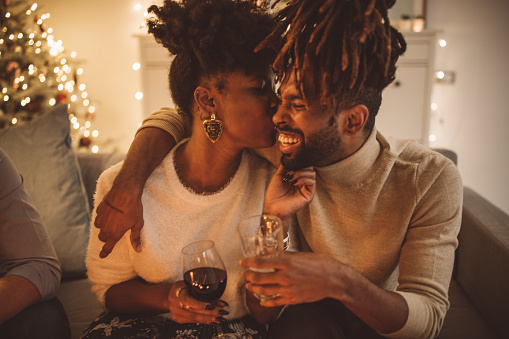
Sometimes, the term ‘codependent’ can be used to casually refer to a relationship where one partner is described as being clingy. However, a truly codependent union has a more complicated dynamic than that.
Since this kind of relationship is not healthy for either individual it’s recommended that each person looks into ways to address the issues and develop a healthier connection.
What Defines a Codependent Relationship
The first thing you need to realize is that codependence isn’t limited to romantic relationships. The dynamic can happen between friends, family members, and even close co-workers.
The two persons within this kind of relationship are known as the codependent and the enabler.
The codependent is the one who needs to be needed while the enabler gets their satisfaction from having their needs met.
This definition might not sound particularly harmful but consider that the codependents often make large sacrifices or disrupts their lives to please the enablers.
The end result is an uneven union that is far from healthy.
Typical Signs of a Codependent Relationship
Regardless of the persons who are involved, a codependent relationship has similar markers. If you’re concerned about your interaction with someone else, look out for these signs.
- The codependent person is a chronic ‘people pleaser’ and obsessively wants to please the other person, often at the expense of their own needs.
- The relationship may lack boundaries that include recognizing that each person has a right to autonomy, freedom, and feelings. By not establishing boundaries, a codependent relationship has one person who is constantly needy and manipulative while the other is compliant and unassertive.
- The relationship involves a lot of caretaking. As the codependent, you may find that you’re constantly taking care of another person and completely arranging your life around their needs.
- The codependent might not get satisfaction from any other activity outside of meeting the enabler’s needs. In fact, not dealing with the other person’s needs may cause rampant anxiety.
- Someone who is codependent may stay in the relationship even though they know it’s unhealthy. They may feel guilty for thinking of their wellbeing or putting themselves above their partner.
- In some cases, a codependent person may go against their values or morals to get the enabler what they want. This has been known to happen most often in relationships where substance abuse is a factor.
As a byproduct of being in a codependent relationship, you may feel exhausted all the time from putting someone else’s needs above your own. Depending on how far you’ve gone to maintain your relationship, there may also be negative effects on your mental and physical health.
What Makes Someone Codependent?
It’s rare for someone to become suddenly codependent. Mostly, the roots of codependence can be found in your history or may even be related to your mental health. Some experts note that persons who form relationships with enablers often have low self-esteem and often determine their worth by being valued or needed by someone else.
If you’ve been someone’s caregiver for a long time or starting at an early age, that may have also altered how you view healthy relationships.
By getting used to putting someone else’s needs first, you may have gotten into the habit of ignoring what you want.
Another factor That can influence codependence is the early relationships you had with parents or guardians.
If this was dysfunctional, you may have grown up being told that voicing your feelings was selfish or greedy. That kind of rationale would make it easier for you to get involved with an enabler.
Finally, persons with mental health disorders that affect their feelings of self-worth may also be prone to codependent relationships. Having someone else to focus on can give them concrete goals to focus on.
How to Deal With a Codependent Relationship
If you’re in a codependent relationship, your first impulse might be to break things off. However, experts say that might not be the best course of action in all the cases.
The first thing you should do is identify all the unhealthy aspects of the relationship, including substance abuse. That could mean that the enabler will need help from a professional. Don’t take on the responsibility of getting them that help.
At the same time, you need to focus on your needs and get support for addressing the issues that led to your codependence. Talking with trusted friends or loved ones can help but in most cases, seeking a therapist is the best way to go.
That route will make it easier to identify the root of the issue as well as chart the way forward.
Codependent relationships are extremely unhealthy and neither party will benefit from this dynamic. If you’re in one, take steps now to address the issues so you can have the relationship you deserve,









